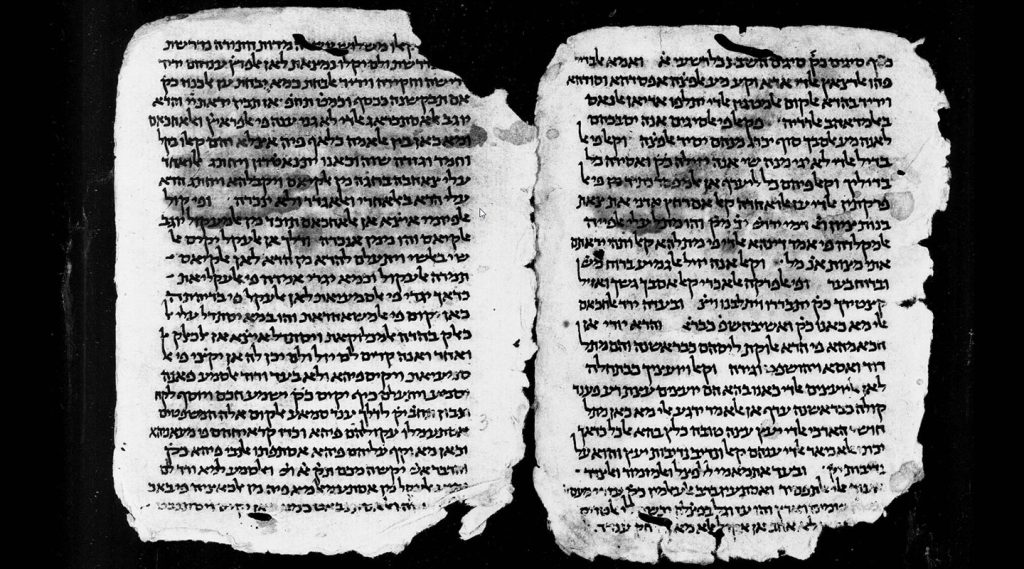Independence and Diversity: Unknown Qaraite Bible Commentaries in Judeo-Arabic from the Early Classical Age
Principal Investigator:
Miriam Goldstein (Hebrew University of Jerusalem) and Ronny
Vollandt (Ludwig-Maximilians-Universität, Munich)
Funded by:
German Research Foundation
Timeframe:
2019–2022

This project, a joint effort of the Hebrew University of Jerusalem and the Ludwig-Maximilian-Universität, Munich, focuses on the origins and history of Qaraite exegesis in the 10th century CE.
It pays special attention to the different interpretative approaches that were in place in the Qaraite centres of scholarship (Palestine and Iraq). Up to this point, research on early Qaraite exegesis has concentrated almost entirely on the Jerusalemite Qaraites Yefet ben ʿEli and, to a lesser extent, Salmon ben Yeruḥim (both part of the movement known as the Mourners of Zion), with little attention given to the commentaries of Iraqi Qaraites. Another desideratum is the close examination of exegetical techniques and styles as well as the topics dealt with in Qaraite works of this period.
With this in mind, the project is editing and translating both the commentaries of the Iraqi Yaʿqūb al-Qirqisānī (specifically, his Kitāb al-Riyāḍ wal-Ḥadāʾiq) and those of the Jerusalemite Sahl ben Maṣliaḥ (on Genesis and Exodus), utilising a contrastive perspective. Sahl ben Maṣliaḥ was one of the most important figures of the Jerusalem school. However, his commentary differs greatly in content and style from the commentaries of Yefet ben ʿEli and Salmon ben Yeruḥim. An edition of Sahl’s commentary will thus broaden our knowledge and appreciation of the exegesis of the Jerusalem school. The new editions and translations will also allow us to contrast the two schools of Qaraite exegesis, in Iraq and Jerusalem, and better understand the development of Qaraite exegesis as a whole.
The comparative analysis will involve examining points such as the nature of the exegetical issues that concern each author, their various techniques for resolving these exegetical questions, the technical and conceptual vocabulary that they employ, and how each of them views the nature of the biblical text (for example, whether they concentrate on the individual verse or look instead at the larger context). We will consider the organising principles of each author in his writing, as well as each author’s writing style. Furthermore, we will investigate how each author deals with the theological issues that arise from the biblical text and how these ideas
are incorporated into the exegesis.
This comparative approach has not yet been attempted in this field of research and thus our analyses will help us to gain a fuller understanding of the overall development of Qaraite exegesis.
Other contributors

